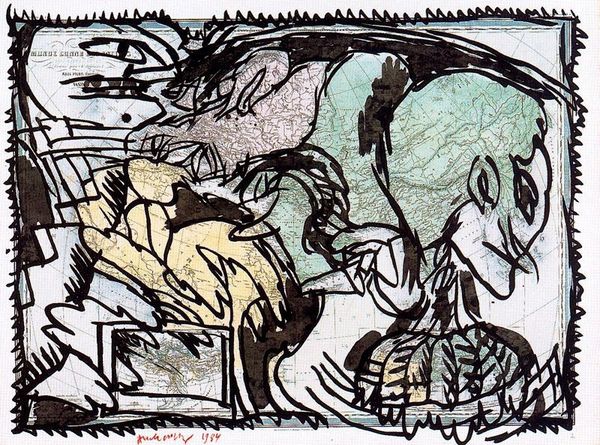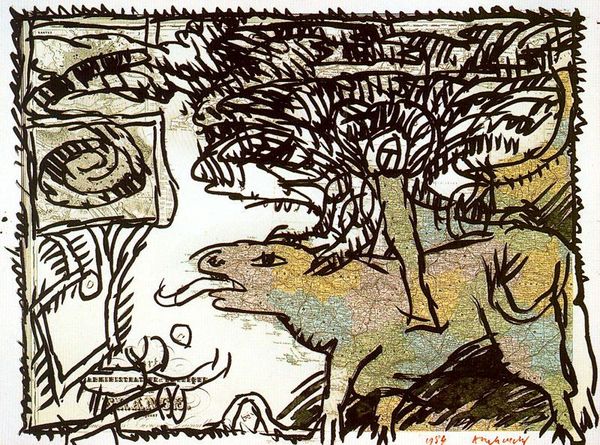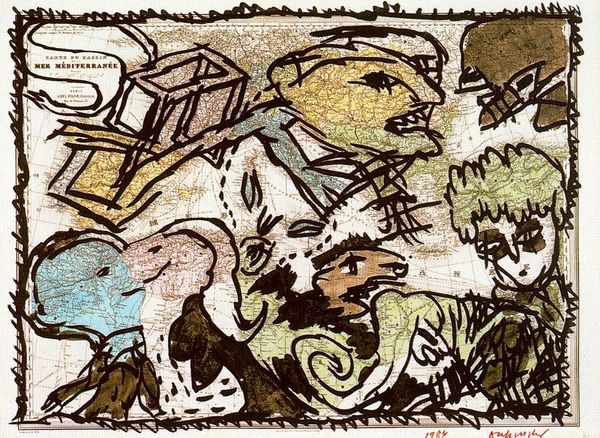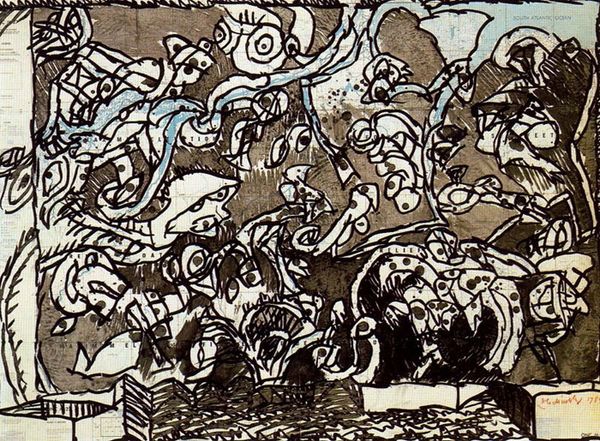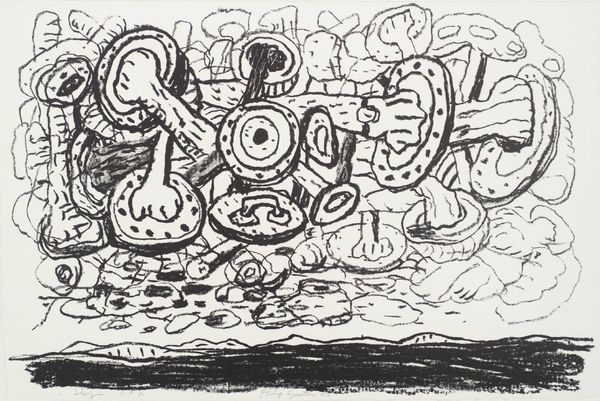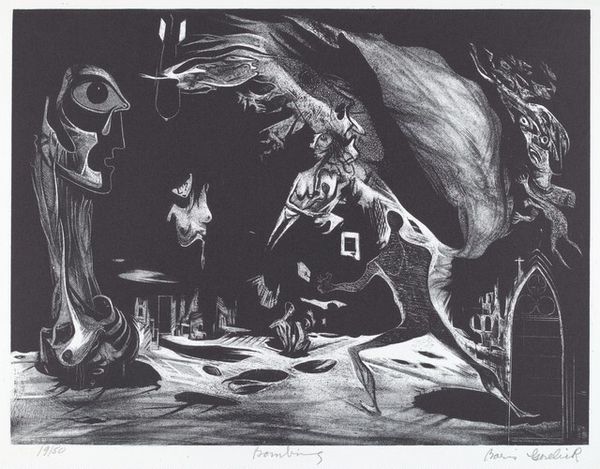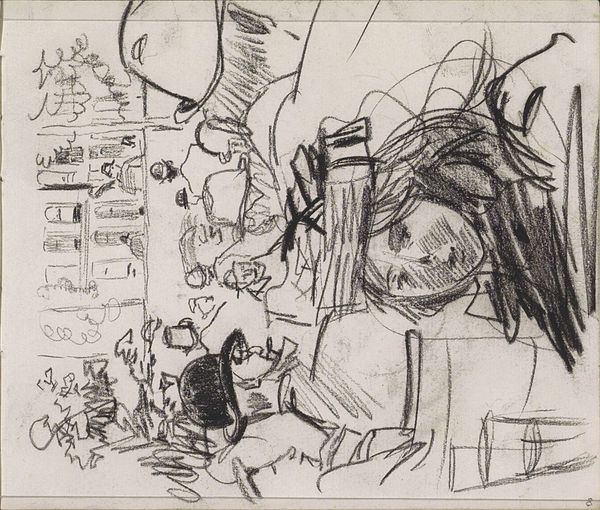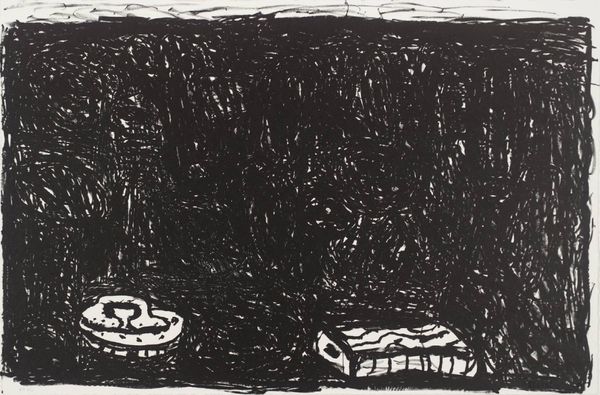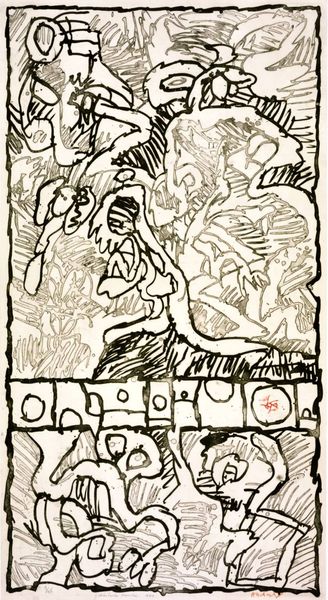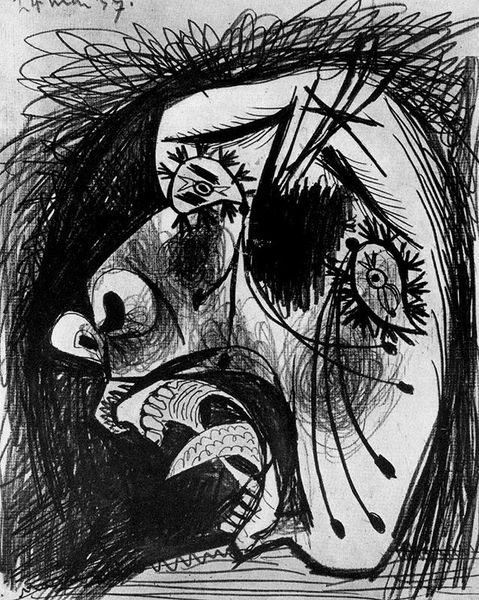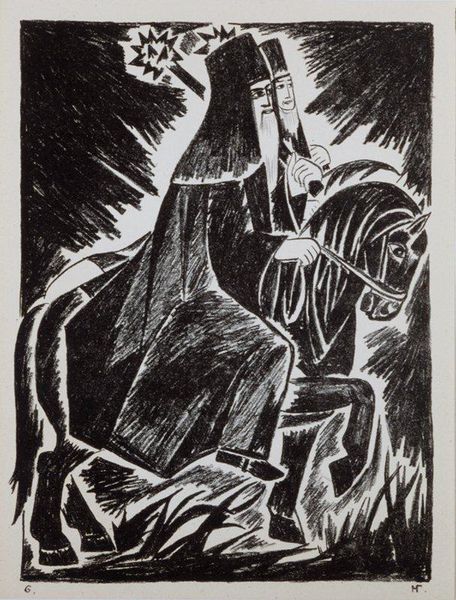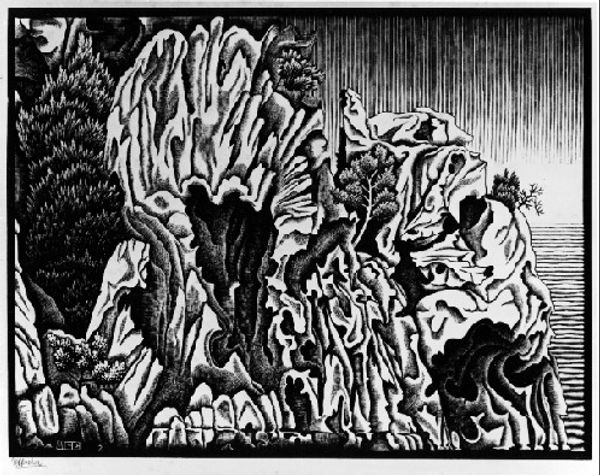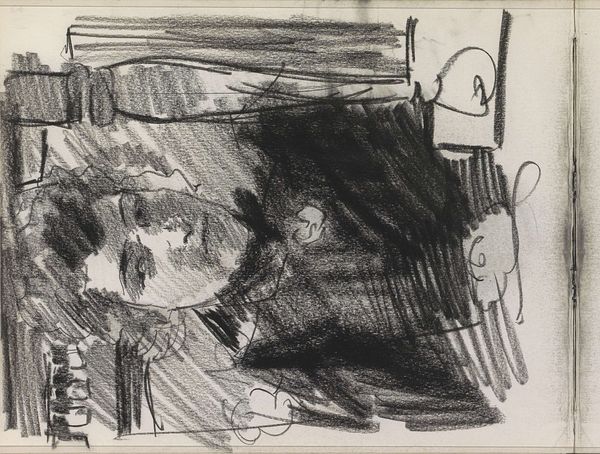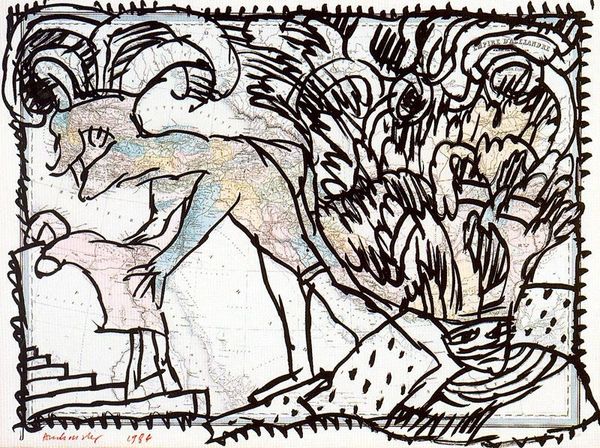
drawing, ink, pen
#
abstract-expressionism
#
drawing
#
pen illustration
#
figuration
#
ink line art
#
ink
#
geometric
#
pen
#
modernism
Copyright: Pierre Alechinsky,Fair Use
Curator: I'm immediately struck by the stark contrast of ink on what appears to be a repurposed map, giving it an immediate sense of foreboding and mystery. What are your initial impressions? Editor: Well, if you didn't tell me that this mixed-media piece titled "Page of the universal atlas, VIII. Sacred geography," is from Pierre Alechinsky, I might have taken this pen and ink drawing as belonging to a different aesthetic tradition altogether! The visual language feels urgent, immediate, but deeply steeped in symbols... almost like illuminated bestiary pages. Curator: Precisely! This feels like an unearthed artifact hinting at the intersection of the scientific desire to map our world with a much more intuitive understanding of geography and nature's powerful symbolism. What do these creatures signify to you? Editor: I'm wondering about the recurring bird-like figures—the stylized beak and wide eyes speak of observation and possibly even judgment. Birds often act as messengers, bridging worlds in mythology. Their presence on a "sacred" geography makes me consider ideas of cartography and colonization…mapping and naming being inherently political acts. Curator: Right! These hybrid figures, surrounded by lines reminiscent of both botanical illustrations and geographical contours, evoke for me post-colonial discourses. What are we mapping when we depict a territory, whether physically or culturally? Whose perspectives are centered and whose are marginalized? This cartographic approach suggests not simply domination but a disruption. Editor: Absolutely. Look closer; even within each quadrilateral space, the "landscape" changes, and that suggests that maybe this world that he’s built isn't unified, or that knowledge is subjective. We can all be located on a different terrain. So I wonder if these map fragments become a tool for dismantling grand narratives by fracturing them into a multitude of smaller, subjective territories. Curator: The act of drawing on a map, rather than creating a map, subverts its presumed objectivity and introduces an emotional layer. That disrupts traditional methods and instead invites us to view the landscape as ever evolving, rather than stable. It suggests possibilities, the very definition of geographic location becomes a concept about possibility. Editor: Yes. Thank you for bringing new dimensions to it! I can sense the work opening and how rich the piece is! Curator: My pleasure, there's so much more here if you give yourself the time to truly feel the image beyond the lines and color.
Comments
No comments
Be the first to comment and join the conversation on the ultimate creative platform.
